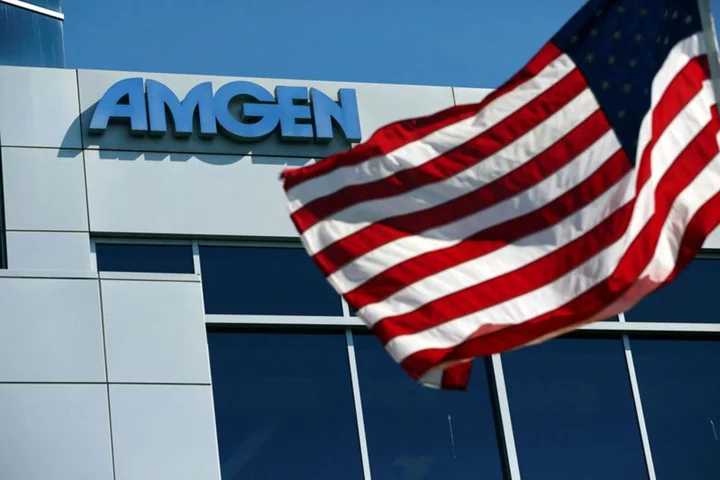By John Kruzel
WASHINGTON (Reuters) -The U.S. Supreme Court on Thursday ruled against Amgen Inc in its bid to revive patents on its cholesterol-lowering drug Repatha over a legal challenge by French rival Sanofi SA.
The nine justices unanimously upheld a lower court's ruling that had invalidated Amgen's patents on the grounds that the Thousand Oaks, California-based drugmaker had failed to provide a roadmap for recreating the full scope of its claimed innovation.
Amgen has waged a years-long court battle to restore two of its patents on Repatha, a drug that can reduce the risk of heart attack and stroke in people with heart disease, stemming from a legal fight with Sanofi and its partner Regeneron Pharmaceuticals Inc.
Amgen sought to patent a group of antibodies that help reduce so-called "bad" cholesterol. At issue was whether a valid patent can cover all the members of an identified group, or if it is limited to only those members of the group specified by the patent owner.
In 2014, Amgen sued Sanofi and Regeneron for patent infringement over their rival drug Praluent, which works by a similar mechanism as Repatha. Both drugs use laboratory-made antibodies to block a protein called PCSK9 that inhibits the removal of bad cholesterol from the blood, but they achieve this result through different chemical combinations.
Bad cholesterol, known LDL, can cause a buildup of plaque in blood vessels and increase the risk of heart disease and stroke.
Amgen sold nearly $1.3 billion worth of Repatha worldwide in 2022. Regeneron sold $130 million worth of Praluent in the United States last year, and Sanofi sold more than $400 million worth in the rest of the world.
The Washington-based U.S. Court of Appeals for the Federal Circuit, which hears all patent appeals nationwide, invalidated Amgen's patents that covered PCSK9-blocking drugs as a group. The Federal Circuit in 2021 ruled that Amgen's patents granted by the U.S. government lacked the kind of detailed guidelines needed to replicate the full scope of its claims without "undue experimentation."
Under U.S. law, a drug patent must allow a skilled scientist to replicate an invention without excessive trial and error.
Amgen had asked the justices to find that the Federal Circuit wrongly applied too high a legal bar by demanding that a patent explain how to make virtually every possible version of the invention that could perform the claimed functions. It argued that a patent need only to "enable skilled artisans to 'make and use' the invention," not account for the full range of possible forms the invention might take.
During arguments in the case in March, Amgen faced tough questions from the justices about why its patents described 26 specific examples of antibodies when the scope of its patents would cover a larger number.
Sanofi urged the justices to affirm the Federal Circuit's ruling, characterizing Amgen's bid as "a blatant attempt to corner the market" for cholesterol-lowering drugs.
President Joe Biden's administration, arguing in support of Sanofi, told the justices that Amgen had not disclosed the information needed to make to make its patents valid.
(Reporting by John Kruzel; Additional reporting by Andrew Chung; Editing by Will Dunham)









